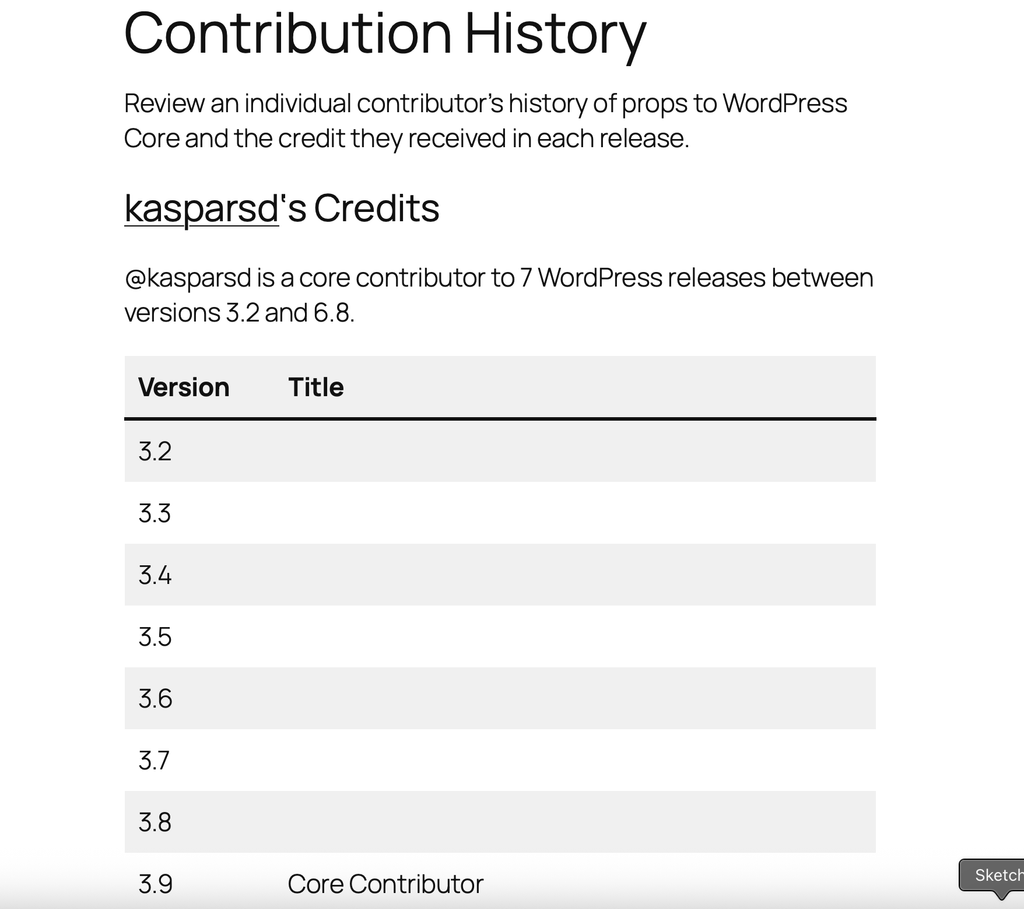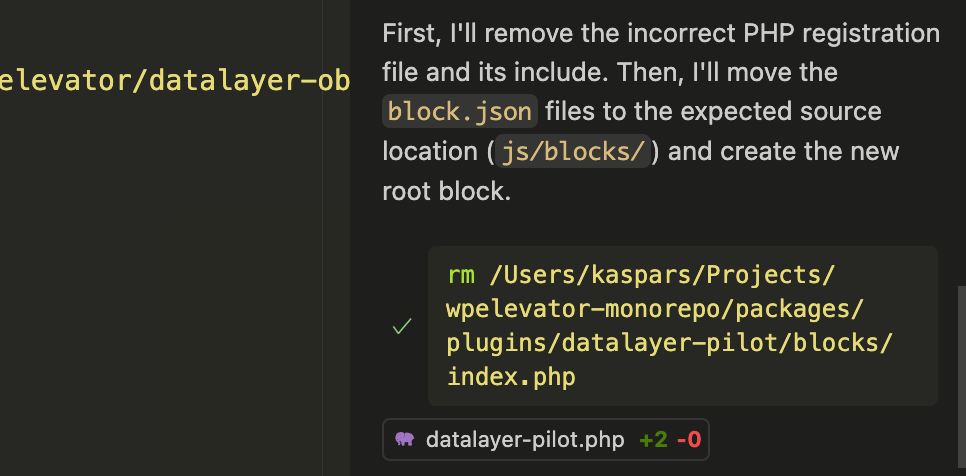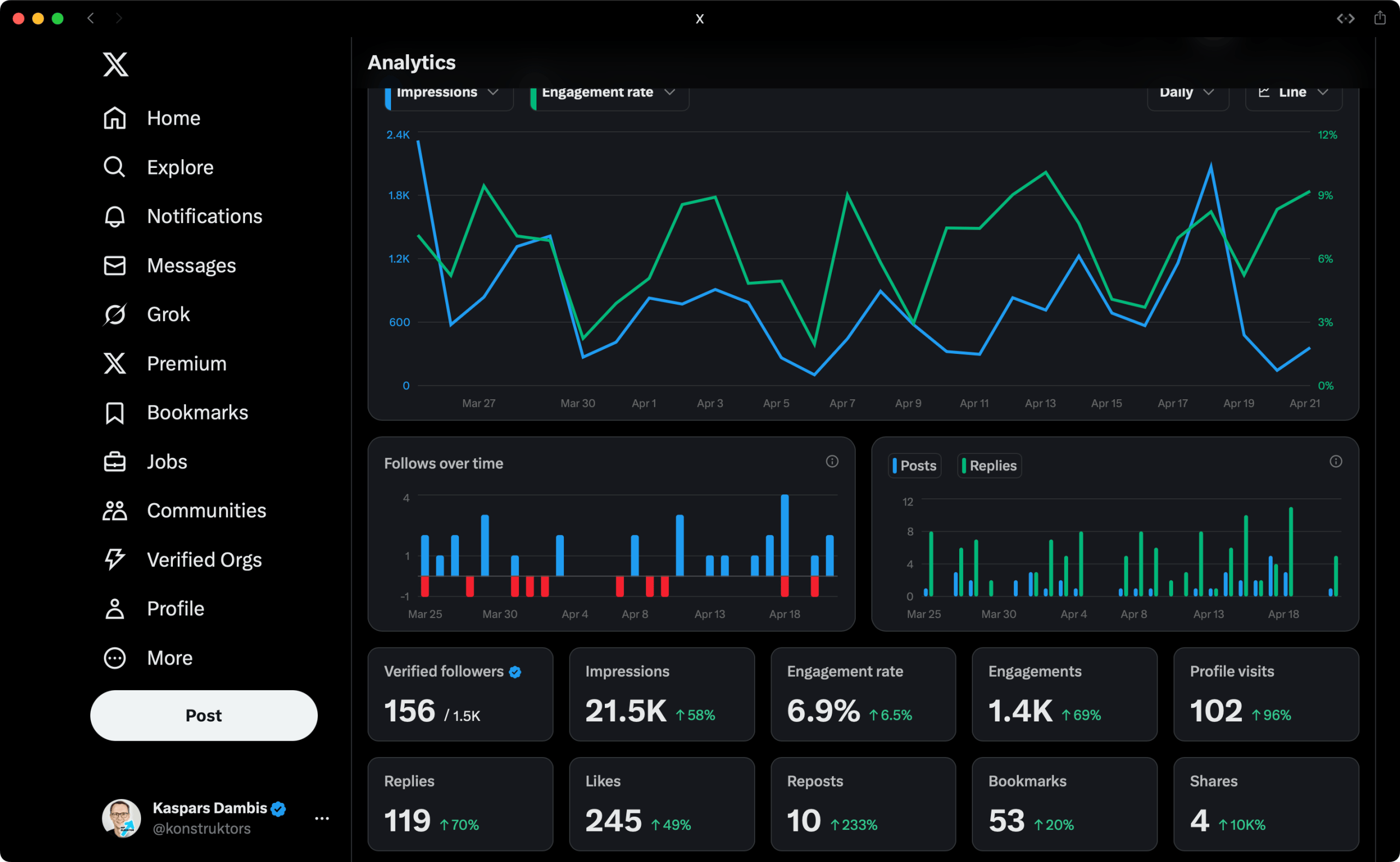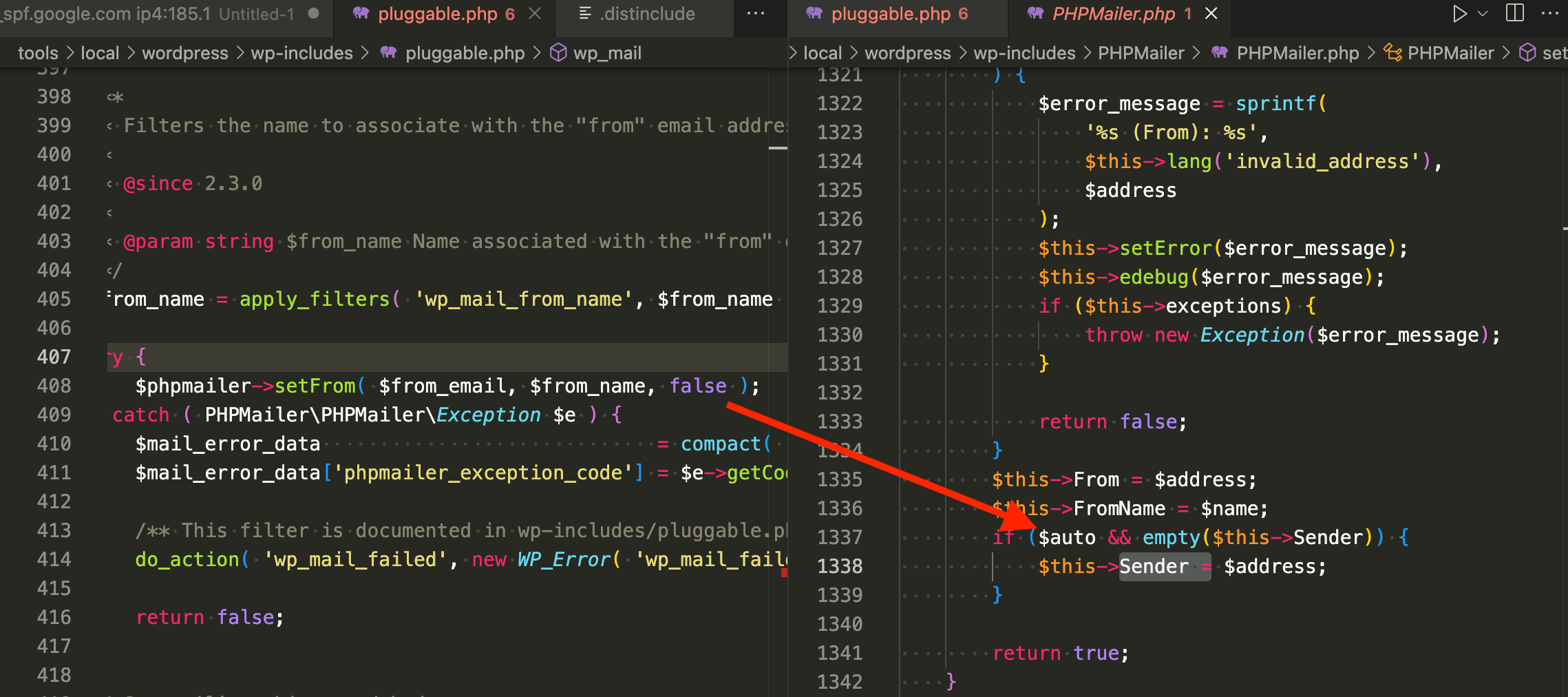On May 3, 2025 at 12:06
WordPress could become the CMS for MCPs 💡 with support for paid endpoints using existing ecommerce infrastructure 🤔
WordPress could become the CMS for MCPs 💡 with support for paid endpoints using existing ecommerce infrastructure 🤔
Responded to @kasparsd:
Learn more at: https://wpshout.com/wordpress-development-course/
We're launching 🚀 Modern WordPress Fast Track — a hands-on video course for devs who want to build real WP products using modern workflows.
Built in collaboration with WPShout, it’s the fastest way to go from tinkerer → confident builder in the era of AI tools and APIs!
Responded to @kasparsd:
Laravel and JS frameworks are way ahead by being developer focused and fully documented with established best practices for a broad set of web primitives.
WordPress needs to reconsider the current focus on the editor or risk becoming invisible to the next generation of builders.
While CMSs obsess over better WYSIWYGs, AI is skipping ahead by generating raw code directly.
Assembling WordPress blocks with AI feels like a dead-end. The real unlock? Better PHP/JS APIs + clear patterns so that AI can build real products on WP.

Here is a great tool by https://aus.social/@peterwilsoncc for finding the versions of WP core that you've contributed to https://peterwilson.cc/wordpress-contribution-history/?wp-credit-history-username=kasparsd
What's the earliest version you've contributed to?
Cursor is like the new hire — enthusiastic and way faster than everyone who has been around for a while (VS Code with Copilot).
I had the same project open in both and was checking who would fix an issue with ffmpeg integration in a Swift app first. Eventually, I fixed it manually (is that how we call coding by humans now?) with an answer from StackOverflow 🤷
Responded to @kasparsd:
Found it! https://xcancel.com/konstruktors
What's the service for linking to Tweets without the login prompt? I've seen it used around here but can't find it.

AI just run the first `rm …` command on my computer. And I trusted it to delete just the files it said it will delete.
What's the scariest thing that you've done with AI?

Just got roasted by an AI 🔥 about my strategy on socials:
> You’re creating technically dense content for an audience that doesn’t want to be lectured or debug with you unless there’s something emotionally or practically in it for them.
Fair. Brutal. True.
Does this resonate with you? What are some tactics that have worked well for you?
Attached are my stats for reference.
Are you running paid ads for your WordPress products? Which platforms are you using and what type of creatives are working best?
The WP core navigation-link block doesn't support current-ancestor feature which was available in the legacy menu system.
Previously we had the following classes available:
– current-menu-ancestor
– menu-item-has-children
– current_page_ancestor
This render method no longer has any of that logic: https://github.com/WordPress/gutenberg/blob/9122cc34fb1d972cdfc59614bf6f140a9b6f7d94/packages/block-library/src/navigation-link/index.php#L172-L295
And there doesn't appear to be an issue for this in the repo.
Responded to @kasparsd:
The Mail Pilot plugin (still in testing) now ensures that all of these match. https://wpelevator.com/plugins/mail-pilot

Are you getting "SPF alignment issues" or "spf=neutral" for emails sent by WP?
Turns out that wp_mail() doesn't set the Return-Path email header which leads to PHPMailer populating that from the php.ini sendmail_from setting. While that is correct, email clients these days expect the FROM domain, Return-Path and DKIM p= domain to be equal to pass the DMARC checks.
Here is a crazy idea — use JSON with actual JS for config files. So many JS and PHP projects seem to embrace it now over plain JSON or YAML files.
Was listening to this interview with Sam Goodwin on devtoolsFM podcast about Alchemy and realized how cool it is to have actual programming language features for configs.
Responded to @kasparsd:
Get the beta version with a 50% discount here: https://wpelevator.com/plugins/lazy-load-blocks
Introducing Lazy Load Blocks for WordPress!
Speed up your site and boost UX by lazy loading any block — videos, embeds, forms, and more without breaking SEO.
💡 Easy setup
🤖 SEO-friendly
🎯 Lightweight and effective
Watch the walkthrough: 🔽

Why is naming things hard? 🏷️ OpenAI is such a young company but their user-facing product names look like this already.
Native <video> in HTML is extremely good these days. Videos encoded with H264/AAC are universally playable and with HTTP chunk support you can serve the same video to all users.
However, browsers seem to request videos with preload=auto/metadata as soon as the page loads which is unnecessary. So I built this lazy-load solution that hides the src attribute (prevents loading) until an Intersection Observer callback.